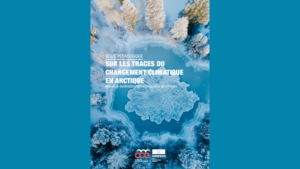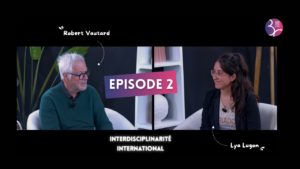Soutenance de thèse
Gaston Manta
LMD
The South Atlantic Ocean circulation and its variability at different scales
Résumé
The ocean, like the atmosphere, is a key component of the climate system redistributing heat from lower to higher latitudes. Also, it has absorbed the majority of the anthropogenic heat through its large heat capacity. The Atlantic Meridional Overturning Circulation (AMOC) is the main mechanism in how the ocean redistributes heat and other properties across this basin. The AMOC has historically received special attention in its northern basin due to its large contribution to the global circulation and influence over the climate in Europe and North America.
Over the last decade, the efforts to observe the global ocean and the South Atlantic have increased, as this basin has the unique characteristic to export heat to the northern hemisphere across the equator and connect the AMOC with the other ocean basins. This Ph.D. thesis aims to understand new insights from the South Atlantic Ocean circulation from a physical oceanography perspective, using the exponentially growing number of observations provided by the deployment of Argo floats, ship-based hydrography, and satellite observations. The study uses different new analyses applied to the ocean and to a recently released atmospheric reanalysis. The Ph.D. work has focused on three different aspects of the South Atlantic Circulation. In the first part, it has aimed to assess the meridional volume, freshwater, and heat (MHT) transports at 34.5°S in the South Atlantic in the first GO-SHIP hydrographic transect at this latitude that took place in January 2017. An upper and an abyssal overturning cell are identified with a strength of 15.64 ± 1.39 Sv and 2.4 ± 1.6 Sv, respectively. The net northward MHT is 0.27 ± 0.10 PW, increasing by 0.12 PW when we remove the observed mesoscale eddies with a climatology derived from the Argo floats data set. We attribute this change to an anomalous predominance of cold-core eddies during the cruise period. The zonal changes in water masses properties and velocity denote the imprint of exchange pathways with both the Southern and the Indian oceans. During the second part of the Ph.D., the analysis focused on the Brazil-Malvinas Confluence, which is the region where opposing and intense western boundary currents, major contributors of the AMOC, meet along the Southwestern Atlantic slope.
Based on shipborne observations combined with satellite data and an eddy tracking algorithm, we analyze the cross-shelf exchanges during May 2016. Two types of shelf water export were observed triggered by mesoscale dynamics: one was the export of shallow Rio de la Plata Plume waters driven o-shelf by the retroflection of the Brazil Current. An additional type of o-shelf transport consisted of a subsurface layer of Subantarctic Shelf Waters that subducted at the Confluence. We show that geostrophic currents derived from satellite altimetry over the slope can be useful to track this subsurface shelf-water export as they are significantly correlated with absolute velocity measurements at this depth. Moreover, Argo temperature and salinity profiles show evidence of these two types of shelf water export, suggesting this is a relatively frequent phenomenon. The last part of the study consisted of studying the natural coupled variability of ocean and atmosphere by applying the Multichannel Singular Spectrum Analysis (MSSA) to the ERA5 dataset. We identified prominent interannual oscillations of 12.8 and 5.3 year periods, characterized by a basinwide southwest-northeast anticlockwise propagation pattern. The novelty of these results relies on that MSSA allows characterizing the spatiotemporal evolution of the variability mode.
Informations supplémentaires
The defense will be in English.
Lieu : ENS – 24 rue Lhomond – room E314 (Salle Froidevaux) – 75005 Paris
Visio link :
https://sciencespo.zoom.us/j/95531048953?pwd=RkFLSk00UmZGM0RreUxCaHl5bmJZZz09
Meeting ID: 955 3104 8953
Password: 863855
The presentation and the questions will be followed by a drinks reception in salle Serre (staircase C, 5th floor) to which you are warmly invited.
Composition du jury
Sophie CRAVATTE : Rapportrice
Alonso HERNANDEZ GUERRA : Rapporteur
Gilles REVERDIN : Examinateur
Laurent BOPP : Examinateur
Martin SARACENO : Examinateur
Herlé MERCIER : Examinateur
Sabrina SPEICH: Directrice
Marcelo BARREIRO : Co-directeur






